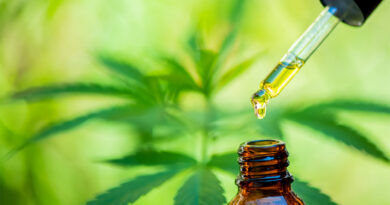Treating And Dealing With Postpartum Depression And Addiction In Women
The risks associated with addiction and depression in women increase postpartum. Studies by the National Institute of Health report that new mothers have an increased risk of alcohol and illicit drug use post-pregnancy, with mothers experiencing post-pregnancy depression (PPD) being much more likely to abuse substances than ones that don’t.

Women who exhibited addiction before pregnancy were at a higher risk of use than those who didn’t show those same dependencies. Correlations between lower employment and unemployed, unmarried, and smoking were all factors contributing to the risk of substance abuse due to PPD.
In fact, studies indicate that women prone to abuse and addiction before their pregnancy don’t stop their addiction. Instead, they merely pause it and return to those behaviors soon after giving birth. Coupling those substance abuse disorders with the hormonal changes occurring during and post-pregnancy, PPD sufferers with chemical dependency issues exacerbate that dependency.
There are various reasons for that, including body and psychological changes in the woman during and post-pregnancy.
Body Changes
During pregnancy, there are a variety of bodily changes a woman experiences. Some of our understanding and confidence in ourselves include our self-perceptions. For some women, dealing with drastic changes to their bodies can create lower self-esteem and self-image, leading to depression.
Some of the more common bodily changes that occur in women during and post-pregnancy that affect self-image include;
- Stretch marks
- Bloating and weight gain
- Swelling in ankles, hands, feet, and joints
- Changes in energy levels
- Increased fat and water retention in the body
- Decreased cardiovascular and respiratory ability
- Changes in body temperature and metabolic rates
- Decreases in body strength
- Changes in the physical structure of the brain
- Weakened bone structure
These bodily changes, combined with the hormonal changes that occur in a woman, can lead to an advanced risk of PPD.
Hormonal Changes
During pregnancy, the body is flooded with a myriad of hormones that are used by the mother’s body to help the baby develop. Unfortunately, some of these hormones disrupt the levels of hormones in the woman’s body, which can cause depression, anxiety, and other psychological and physical changes.
After pregnancy, the body is again flooded with hormones. Some of these hormones are the body’s attempt to swing back into equilibrium with the mother’s body. Other hormones are designed to help the mother bond with the newborn, but too much or too little of these hormones can lead to PPD in the mother.
Cognitive Changes
One final area in which the mother experiences profound change is cognitive. In some instances, the mother’s brain contracts, while in other areas, the brain’s neurons expand and grow, creating new connections within the brain.
Cognitive changes can impact mental functions like concentration and memory when these new connections are interrupted or don’t connect fully due to hormones or other modifications. Cognitive changes can affect mental functions like concentration and memory.
The links between these changes in women during pregnancy don’t have a direct link to PPD and addiction, but it is believed that there is a strong correlation.
Women more prone to substance abuse show higher risk-behaviors post-pregnancy levels than those who suffer from PPD without those risk concerns.
The most common substance abuse post-pregnancy includes;
- Alcohol use leads the list, used by up to 49% of new moms
- Cigarettes
- Marijuana
- Prescriptive drugs, such as opioids and stimulants
- Non-prescriptive, unregulated illicit drugs such as cocaine and methamphetamines
Whether postpartum or not, seeking treatment to deal with the underlying causes and creating healthy alternatives and coping mechanisms are crucial for women suffering from addiction.
There are various treatment options available to you, from in-patient hospitalization to behavioral treatment options.
Talk therapy and behavioral therapies are the most common and may include personal therapy, group therapy, and even family therapy to deal with treatment’s triggers and underlying causes.
In some cases, more specific types of talk therapy can help. But the key is finding the most effective and practical treatment for you.
You can consider the following;
- Christian therapies that teach a spiritual approach to therapy and treatment
- Womens rehab services that specialize in dealing with triggers and causes of addiction as related to women, PPD, and other causes
- Exercise treatment therapy is designed to provide a physical outlet for triggers and to elevate moods
- Art therapy is another behavioral therapy providing emotional release and strengthens mental function as a result
The direct link between pregnancy and addiction isn’t entirely clear though recent studies show a correlation. Getting treatment for recovery and developing healthy coping skills can alleviate the more severe impacts of PPD in some cases.



